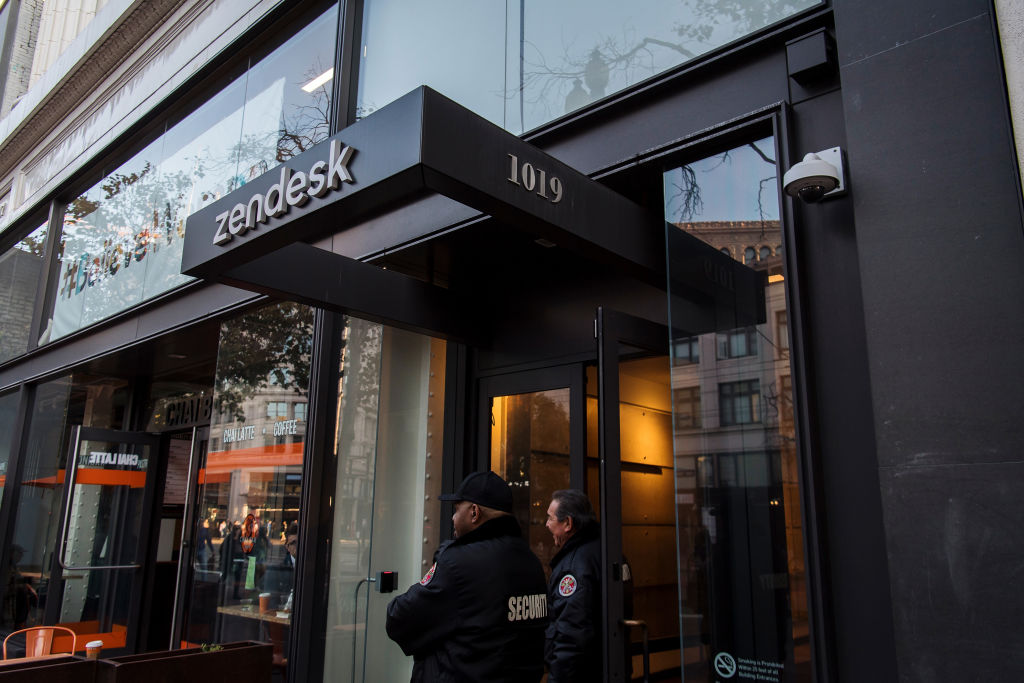When consumers started buying cars, many predicted the transportation revolution would lead to air pollution, traffic and life-threatening collisions. But no one gave much thought to the security aspect.
Early autos were very easy to steal: With a little practice, almost anyone could hot-wire an ignition, and Vehicle Identification Numbers were decades away. Most cars lacked locking doors until the 1920s, and Chrysler wouldn’t invent the ignition lock until the 1940s.
Fast-forward to today: the automotive cybersecurity industry has a compound annual growth rate around 20%. Likewise, the digital transformation sparked by the pandemic has boosted the cybersecurity asset management sector to new heights.
Full TechCrunch+ articles are only available to members
Use discount code TCPLUSROUNDUP to save 20% off a one- or two-year subscription
There has been a steady drumbeat of stories about high-profile hacks, leaks and ransomware attempts since COVID-19 arrived on the scene. Newly remote workers are gathering and processing data titanic amounts of data, so keeping it secure has taken on greater importance.
In short order, this shift has created tangible benefits for the cybersecurity industry: In 2021, investors poured $29.5 billion into cyber startups, a YoY increase of 138%. Likewise, M&A activity nearly tripled, totaling $77.5 billion.
“Asset inventory has historically been a challenge when workforces were physically sitting in company offices and on company networks,” said Paul Baird, chief technical security officer at cloud security firm Qualys.
“With the pandemic solidifying a new normal of either fully remote or hybrid working approaches, the complexities surrounding asset inventory have only increased in difficulty,” he told TechCrunch.
Thanks very much for reading,
Walter Thompson
Senior Editor, TechCrunch+
@yourprotagonist
Why are cybersecurity asset management startups so hot right now?
Our startup’s first hire was a fractional Head of Remote

By this point, most startup employees have worked remotely. Even so, few managers have any meaningful experience when it comes to overseeing distributed teams.
With that in mind, SaaS startup Wingback made a fractional head of remote its first hire, “and it was the best decision we made,” said Yann Leretaille, co-founder and CTO.
“A head of remote is not just a glorified HR manager. They make sure that the right processes are set up and that the right tools are selected and used to make remote work successful.”
TechCrunch Experts is recruiting recruiters

It’s common for early-stage founders to spend more than a third of their time on recruiting — not because they want to, but because they have to.
Fundraising is key, but a generous wire transfer from an enthusiastic investor only addresses one problem. Before you can deliver on any of the promises in your pitch deck, you’ll need to build a team.
To help TechCrunch+ readers take on this challenge, we are looking for experts to participate in a survey about tactics and strategies for startup recruiting in Q1 2022.
Do you have recent experience recruiting talent for pre-revenue startups?
If this describes you — or someone you know — please use the form to share a link to their professional profile and their contact information before March 4, 2022.
Exploring the many faces of sidewalk delivery robots with Cartken’s Anjali Jindal Naik

As part of an ongoing series of interviews with transportation startup founders, Rebecca Bellan spoke to Anjali Jindal Naik, co-founder and COO of Cartken, which manufactures autonomous sidewalk robots.
Since its founding in 2019, the company has run pilot programs in Miami, Rotterdam and Tokoname, Japan, to offer curbside delivery and local pickup for restaurants, convenience stores and coffee shops.
“I think being on the bike path or even on the road creates some barriers to entry,” Naik said.
“Sidewalks, to us, seem like the best way to get to an origin and an end destination. So that’s kind of where we’ve landed.”
Exploring the many faces of sidewalk delivery robots with Cartken’s Anjali Jindal Naik
Zendesk spurns $17B private equity takeover offer

Zendesk’s board of directors is a confident, secure group of individuals.
Last week, it declined a $17 billion offer from a consortium of private equity firms on the grounds that “this non-binding proposal significantly undervalues the Company and is not in the best interests of the Company and its shareholders.”
As Ron Miller and Alex Wilhelm note, the company best known for its help desk platform now has a suite of integrated support products that “accounted for $500 million in ARR and 35% of total ARR in its first year.”
Given the company’s steady growth, “who wants to sell that business for 10x?”
Startups are evolving to manage growth alongside profitability

My knowledge of physics is rudimentary, but I know that momentum can only take you so far.
Eventually, external forces like gravity, friction — or increased competition in your chosen sector —will cause things to slow down a bit.
As startups get larger and older, they’re also adopting new growth strategies to deepen their defensible moats, said Amit Anand, a founding partner at Jungle Ventures.
In a TC+ guest post, he looks at tactics companies like DoorDash, Block, Airbnb and Zomato are using to build more resilient businesses. Three trends he’s identified:
- Moving beyond demand-side innovation
- Creating an ecosystem of offerings to maximize value
- Accelerating profitable non-core operations
Startups are evolving to manage growth alongside profitability
It’s not a startup reckoning, it’s a correction

Natasha Mascarenhas considers the turbulence at companies like Peloton and Hopin that experienced a huge pandemic-induced bump.
“Every growth round, mega-valuation, impressive IPO pop and total-addressable-market bump gave the appearance of strength amid the crisis,” she writes.
“But the same tailwinds that drove so much value creation also quieted money-saving conversations and planning for a future deceleration.”
As a result, we’re starting to see “which startups are disruption-proof.”





























Comment